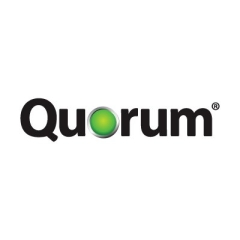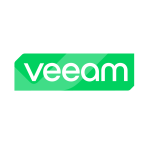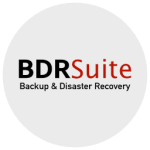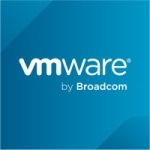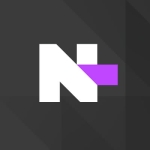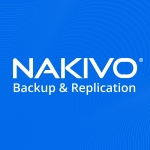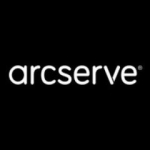What is our primary use case?
We mostly use it for disaster recovery and high-availability. In case of a server failure, we can deploy a server and have the location up and running instantly, within minutes. And then, once the location closes, if we need to, we can do a full restore of the server to new or similar hardware. If it's something as simple as the server going down or becoming unresponsive, we can bring it up, use it for what's needed, and then just transfer the files that needed changing.
How has it helped my organization?
The locations don't even know that anything has happened because, if a server goes down they call me. In minutes, I have a virtual version of that server up and running as if nothing had ever happened. It's actually pretty awesome. It's not necessarily that it saves me time on anything. It saves me the headache of losing productivity from my users. In other words, if something were to happen to a physical server, none of my users would lose productivity throughout the day, and the business keeps going as usual.
An example of how it has helped us is that about a year-and-a-half ago, we had a physical server that completely failed. It was our primary domain controller. It's what sends all the instructions to every other domain server to tell it what to do. If it doesn't communicate, we lose a lot. We noticed weird errors happening on the server. We had a hardware technician here and we tried to check things and we tried to repair the actual file system but we lost the array so we lost the data. But, because of Quorum, within two minutes, the branch was back up and running. They knew nothing had happened.
That night, we completely restored that server. It took us about an hour to get everything back up and running. There were some minor configurations that we needed to change after we got the server up and running, the next day. And everything was back to normal. If we hadn't had Quorum in place, within 24 hours, all of the servers would have been out of sync. We would have lost the entire domain and have had to rebuild the domain servers from scratch. That would have taken weeks.
We had noticed the errors at around five o'clock in the afternoon and we decided to wait a little bit. Around six o'clock is when the server failed. By seven o'clock we were back up, everything was running, and we went home for the night.
What is most valuable?
When it comes to recovering what you need from a backup, it's super-easy. I give their dev team credit for making it super-simple. When we first started with them, it was a little on the clunky side. We were an early customer for them but they have upgraded it over time. I can open up a window share within three minutes and copy the files I need, if I just need specific files. In five minutes, I can have all the files I need for a specific day and go back as many days as I want. We store for 30 days so I can pull 30 days' worth of data. Six years ago that would have taken me about 10 to 15 minutes. It wasn't terrible.
Now, if it was a restore of servers, that's a different story. If I had to take a server and completely do a bare-metal restore before, it was down a good 4 hours, maybe a little bit less. Now, it's 30 minutes. They really changed the way things go.
From a disaster-recovery point of view, one of the things I really like is that I can test the virtual copy of the physical server on a test network and compare the servers side-by-side, without interfering with the production network. So I can see and make sure that the latest copy of the server is the physical copy of the server, without interfering with production.
Also, it automatically tests the copies of the servers for me. Whenever there's a copy of a server — bringing it over to the Quorum device to make a copy — it tests it and makes sure it will boot, that everything works fine, and then shuts it down. It sends me a notification saying "backup successful, test successful." I can choose a date that I want within the last 30 days, boot that server up on that specific day, and it will show me every file that was on there. So it does versioning. It will make the changes incrementally, so I can go through them by days. If there are any errors with a snapshot that has been created, I will get a notification and I can test it manually if I need to, or I can look into it why it failed. Maybe the server was in the middle of a reboot when it was trying to create it and created some errors. I can just create a new backup with one click. It sends it over to DR site and it's done.
We're protecting the data we currently have against failures, malware, or ransomware. We can do a one-click restore of files without losing them, so we don't have to pay ransom.
Also, all of the data is significantly compressed, so it does reduce data usage, but it's not something that we use to reduce our data usage.
One nice thing that they added is a single pane of glass to see all of your servers. You can see whether up, down, or transferring. That was a nice addition in version 5.
What needs improvement?
One thing that could be done to improve it would be a single pane of glass for doing disaster recovery testing, where I could have remote consoles in one place. They may be working towards this, and I haven't necessarily tested all of the features of version 5 yet. It is completely new to me. But as far as DR testing goes, I think I still have to go to each location in a browser and then bring up the console. I'd like to see them integrate that into a single pane of glass so I don't have to go to each server.
For how long have I used the solution?
We are going on our sixth year using Quorum.
What do I think about the stability of the solution?
In six years, on the old hardware, I never had to replace the drive and the server never went down. Rarely did I have to do any software maintenance. Updates were done automatically on a device and whenever there was an update that required my intervention, Quorum contacted me and they were more than willing to just say, "Hey, do you want us to do this for you?" and they did most of the stuff on the back-end. I didn't have to do much of anything.
What do I think about the scalability of the solution?
You have to size it to what you think you're going to be doing. Cloud is different, if you're doing cloud, scalability is infinite. We do on-premise machines, so we scale slightly larger than what we need for future expansion. If we're doing a local branch, which are just file servers that do Active Directory, they're not anything special. But our operations center is backing up six to seven servers, so it's a little bit more beefy. We decided to go 64 cores, just to have that extra power.
Currently, we have everything backed up that we need backed up. Unless we're expecting additional servers to be added, which at the moment I don't think we are, for DR purposes it's exactly what we need.
How are customer service and technical support?
As far as support goes, whenever I have had an actual problem with something — like one of the servers for some reason stopped transferring data from the HA device to the backup device itself — within a day, I had somebody from Quorum fixing the problem.
If I email tech support I get an email back within the hour, with a date and a time when they are next available. As soon as I agree to that, I have a schedule on my calendar for that specific date and time.
There are a couple of engineers that I talked to regularly because I actually got to know them for deployment. So when I called them, they picked up the phone. They knew it was me. You can create a rapport with them and they're all really nice guys. They're in California and Seattle and one guy I talked to is out of New York.
Which solution did I use previously and why did I switch?
We were just using NAS devices to back up the data itself. If something were to happen, we would have to physically rebuild a server and import the data back into the server to be up and running.
We looked into Quorum for the ability to have a hot-standby server to power on. It was pretty enticing to not have to worry about rebuilding a server on the spot, if it failed. Being able to image the server back to the physical hardware was also enticing.
How was the initial setup?
The initial setup was really straightforward. I received the servers and, in one day, I had the servers physically deployed to each location. Within two days, we had every server up and running and backing up its current node, and we do have a fairly high amount of bandwidth availability. We had finished with the servers on a Thursday and Friday. By Monday, all of them had sent all of their data to their DR systems. Everything was replicated.
In a matter of five days, we went from having the old system up and running, to dismantling the old system, bringing the new system online, and copying everything over.
When we talked about the deployment, there was a team of engineers I was working with. They took our previous environment — they had all of the information from that — and they sent me a document that I had to fill out, which was super-easy. I gave them a list of IP addresses that they needed. I gave them subnets, gateways, server names, and what I would like the onQ servers to be named. They reviewed that information and came back to me with some changes that they would like to see. We reviewed it and talked and, within a day or two, we had something set that we were going to deploy. Once we did that, they started the work on their end and when I got the servers, they were 90 percent configured.
There were two or three engineers I spoke with for implementation. Then I spoke with an engineer for deployment and another engineer for the miscellaneous odds and ends that we had to finish up with. They were all from Quorum. On our side, it was just me involved.
As for the integration into our network, I didn't have to do anything. I plugged it in. I'm dead serious. I plugged it in and that's it. You can't get any better that that. Because I sent them all the information for IP addressing, subnetting, servers, set up, how many servers at each location, where the DRs were going to go, how they were going to transfer, it was all done on their test network. They plugged everything in and created all of the links to the devices and then they sent them to me.
Including the ordering of the servers, the whole process took about a month. Once they got the information from me, they had to order servers and receive them, install and configure the software, and get confirmation on where they were going to be shipped.
And I'm the only one involved in maintenance of the solution. I rarely have to do anything with these. They are incredibly low maintenance.
What was our ROI?
Having Quorum gives us 100 percent uptime. That would be the easiest way I can quantify it. If a server fails, we're still in business. Everything still runs as it should.
It's not possible to put an actual number or value on how much it's saved us. But to give you an idea, without that server — the one I told you about that went down — our lending department would not have been able to function and the branch would not have been able to function, so no transactions would have happened.
What I know is that it saves me headaches.
It depends on the scenario. Sometimes it might not be as impactful. It could be a hard drive failure in a RAID, which is not a big deal. One hard drive fails, you pop it out, pop a new one in, it's rebuilt. Operating system failures can be fixed, but it takes some time. If it's a catastrophic failure, that's where it really comes in handy because we have a copy of the server. We just boot it up, let it run, copy it over to a new server. Done.
What's my experience with pricing, setup cost, and licensing?
If you were to go out and buy a server, you would not pay much more than what you would pay for the devices that they sold us. They took a massive discount off of these devices.
If I were to give you a quote on what the servers would cost, it might not be accurate across the board because each device is configured differently, depending on how much memory you need, how much hard drive space that you need, the processor size, and how many HA devices you're going to be putting on it. There are a lot of factors involved in pricing.
There is also a maintenance agreement for the software and updates. Those also vary in pricing, depending on how many protected nodes are going to be on it. Included in that is the support from Quorum, so if something goes wrong, you give them a call. You get somebody on the phone an hour or so later. You start a remote session and they log in and they take care of everything. It's really nice.
What other advice do I have?
Think about your use case. If you need high-availability immediately, where you don't have to worry about routing and forwarding and transferring the information that you have locally to the cloud, that comes down to choosing cloud versus onsite/on-premise physical devices.
Cloud is nice. You can route, although it does take a little bit more time, but you have no physical devices on-premise. There is higher bandwidth utilization when you're using cloud, versus on-premise, where you're using your local LAN and WAN. In the latter case, you have a little bit more flexibility.
The other thing I would recommend is making sure that you have enough bandwidth to transfer the data to your DR sites. When we first started, we had T1 lines and it was painful. It worked, but it was painful. Now with the increase in speed, with Metro Ethernets and high-speed fibre, you can do 150 MB or higher, it's really not a problem. Just make sure you have enough bandwidth to transfer the data.
It is a DR solution. It's there for the possibility of a disaster, so we don't have to pull our hair out and work 20-hour shifts just to get a server back up and running. We can actually relax, take our time, and do things right, rather than having to panic and do things in a rush.
The biggest lesson I've learned from using it is that, like with all hardware and software services, you do have to monitor it. It is there in the background doing its job and it does it well, but you have to make sure you're monitoring it, because if something does go wrong and that server fails, you still have the possibility of a failure. But it is good at what it does. It will backup servers, it will do its job well.
In terms of recovering a file or data that someone has overwritten or deleted by accident, that happens all the time. It's normal that someone loses a file. We have several other ways of restoring files so I don't use Quorum all the time. Sometimes I'll use Shadow Copy, because we take shadow copies. Sometimes I have Azure; sometimes I use Quorum. It all depends on how far back and how frequently they need that data. I use whichever one is easily available at the time I need it. Azure is a little bit more difficult than Quorum; it takes two to three minutes to get a file back with Azure. Usually, with Shadow Copy, you can right-click on the folder and you can restore right from that. But we can only go back a few weeks with that. Quorum goes back 30 days.
When you use Quorum, it will go to protected mode. You log in to your portal, go to restore, select files, go to the server, select the date, and then you start. It gives you a URL and you go to that URL and your Windows Explorer and it opens up a File Explorer for that specific time and you can browse the folders.
I have to rate Quorum at 10 out of 10. There's no doubt. It's solid. I don't have to worry at night. Even in the middle of night, if a server fails and I get a notification on my phone saying a server is down, I can log in, start a server, and have that branch operate. In the morning, they don't know that anything happened. It gives me peace of mind. I don't have to stress. There's enough stress in IT; I don't need more.
Which deployment model are you using for this solution?
On-premises
Disclosure: PeerSpot contacted the reviewer to collect the review and to validate authenticity. The reviewer was referred by the vendor, but the review is not subject to editing or approval by the vendor.

